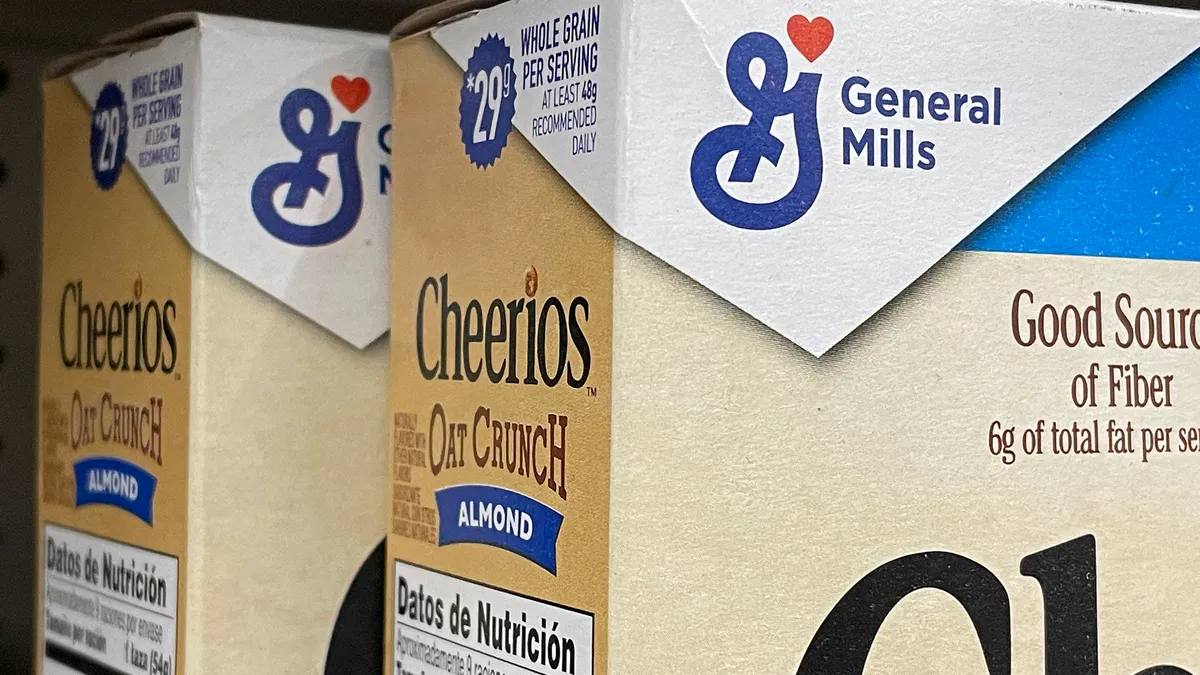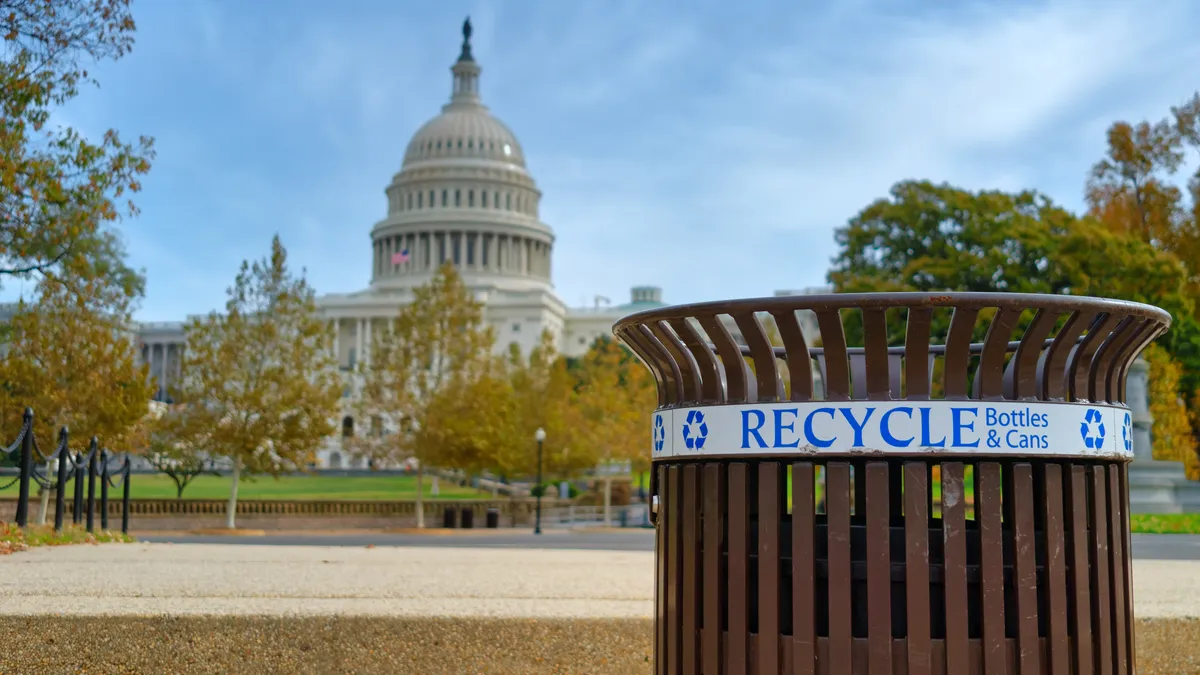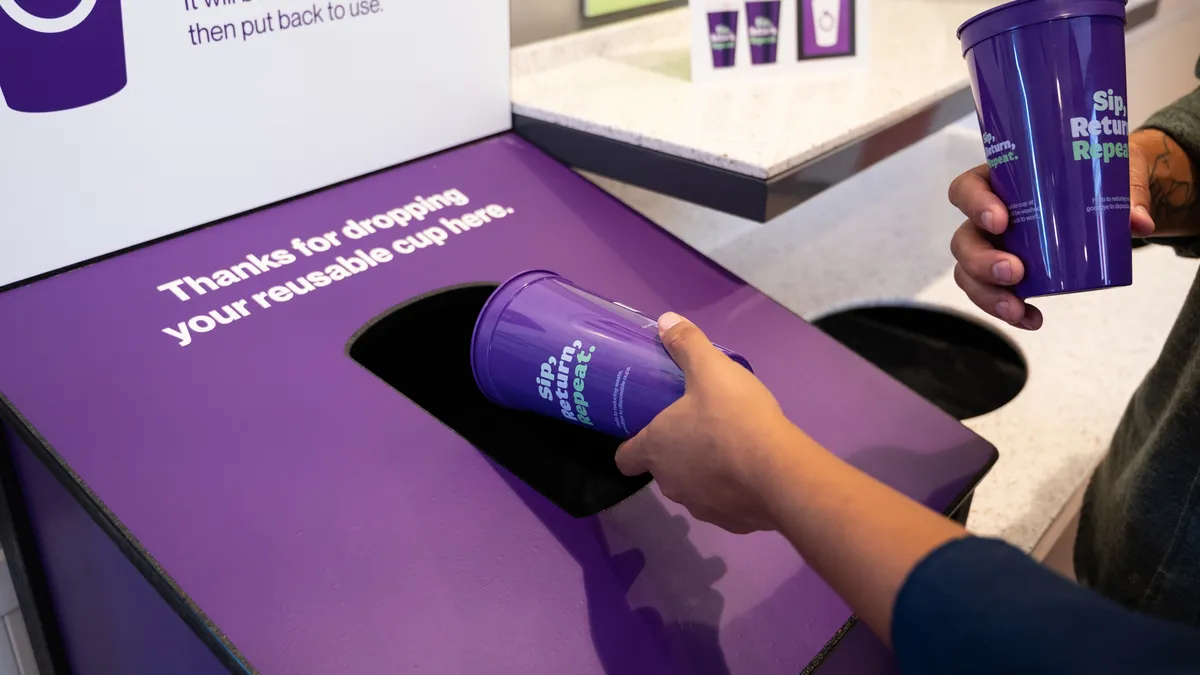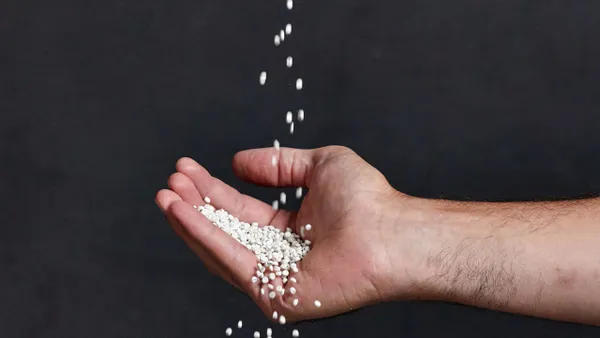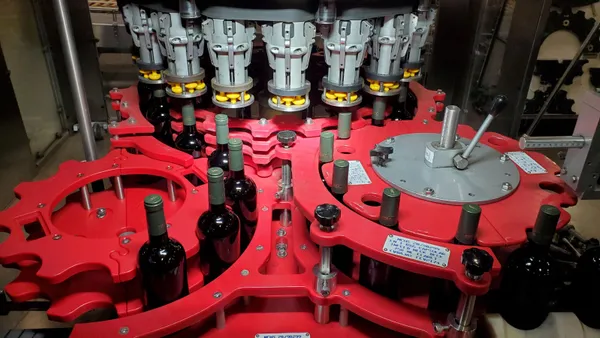General Mills is progressing on making its packaging reusable or recyclable while working to overcome barriers to increasing its use of postconsumer recycled material, according to its 2024 global responsibility report released Thursday.
The report — which covers data from the fiscal year 2023 period of June 1, 2022, through May 28, 2023 — describes the company’s three-tiered approach to addressing 25 ESG issues. Packaging falls among the six top priority areas under tier 1. The report notes that while packaging plays a critical role in protecting products and ensuring safety, it “presents challenges both in terms of raw materials used in production as well as the waste generated when improper disposal occurs, and is a top sustainability issue with consumers.”
A key goal is for all General Mills packaging to be recyclable or reusable by 2030. It reached 93% by weight in FY 2023 (excluding Asia and Latin America, external supply chain and pet treat businesses), which is up from 92% the previous year.
The report cites the significant time and financial investments in innovation that are needed to achieve the packaging sustainability goals — especially given the wide variety of packaging used across its SKUs.
In the fall of 2023, which is technically outside the time frame covered in this report, General Mills converted its plastic value-sized cereal bags to “a recyclable structure,” according to the report. Also last fall, the company transitioned packaging for Betty Crocker cake mixes to be fully recyclable.
Generally, the company aims to reduce its plastic use. In FY 2023, 11% of General Mills’ packaging by weight was plastic, down from 12% in 2022. General Mills’ cereal liners contained at least 35% postconsumer recycled content in 2023.
The company aims to increase the amount of PCR in its plastic packaging. But because most of its plastic is direct food-contact flexible packaging, currently there is not “a widely available and safe food-grade post-consumer recycled plastic (“PCR”) alternative.”
The FY 2022 report also stated that challenge with food-grade PCR. But it highlighted a partnership working to create the Myplas film recycling plant in the company’s home state of Minnesota, which was expected to produce recycled plastic pellets that could be used for food packaging. The Myplas facility opened in December, but as of last week was non-operational and facing an eviction lawsuit. General Mills’ latest ESG report does not mention Myplas.
Also in 2023, the company was an inaugural participant in the Recycle Check program. The Recycling Partnership launched the labeling initiative last year to improve consumers’ access to local recycling information via codes to scan on packaging, with the intention of reducing consumer confusion about, and increasing participation in, recycling programs.
The packaging value chain accounts for 8% of General Mills’ greenhouse gas footprint, according to the company’s concurrently released inaugural climate transition action plan. Of those emissions, 38% are linked to metal, 35% to fiber and 21% to plastic. General Mills aims to reduce scope 3 emissions 30% by 2030, compared with a 2020 baseline, and it charted 7% in 2023.



